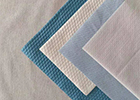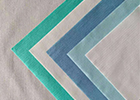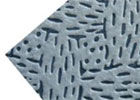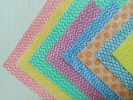Innovative Uses: Nonwoven Polyester in Various Industries
Introduction
Overview of nonwoven polyester and its versatile uses
Nonwoven polyester is a synthetic fabric that is made from polyester fibers. It is created by bonding or pressing together the polyester fibers without the use of weaving or knitting processes. This unique manufacturing method gives nonwoven polyester its distinct properties and makes it highly versatile in various applications.
Nonwoven polyester can be produced in different weights, thicknesses, and densities, depending on the intended use. It can be made to be lightweight and breathable or dense and durable. The fabric can also be treated with additional coatings or additives to enhance its performance characteristics.
Importance of nonwoven polyester in various industries
Nonwoven polyester finds extensive use in a wide range of industries due to its excellent properties and versatility. Some of the notable applications include:
1. Automotive industry: Nonwoven polyester is used in the production of car interiors, such as seat covers, door panels, and headliners. Its durability, resistance to moisture and chemicals, and ease of cleaning make it an ideal choice for automotive applications.
2. Healthcare sector: Nonwoven polyester is widely used in the healthcare industry for items such as disposable gowns, masks, surgical drapes, and wound dressings. Its non-allergenic properties, breathability, and ability to withstand sterilization processes make it suitable for medical applications.
3. Filtration systems: Nonwoven polyester is commonly used as a filter medium in various filtration systems, including air filters, water filters, and industrial filtration systems. Its high filtration efficiency, low pressure drop, and resistance to chemicals make it an effective choice for trapping particles and contaminants.
4. Horticulture and agriculture: Nonwoven polyester is utilized in the production of plant protection fabrics, crop covers, and weed control mats. It provides effective protection against pests, UV radiation, and extreme weather conditions, while allowing sunlight and air to reach plants.
5. Packaging industry: Nonwoven polyester is used in packaging applications such as bags, pouches, and wraps. Its strength, tear resistance, and ability to be printed on make it a preferred choice for packaging that requires durability and branding.
In conclusion, nonwoven polyester is a versatile fabric that offers numerous benefits across various industries. Its unique manufacturing process and customizable properties make it an ideal choice for automotive, healthcare, filtration, horticulture, and packaging applications.
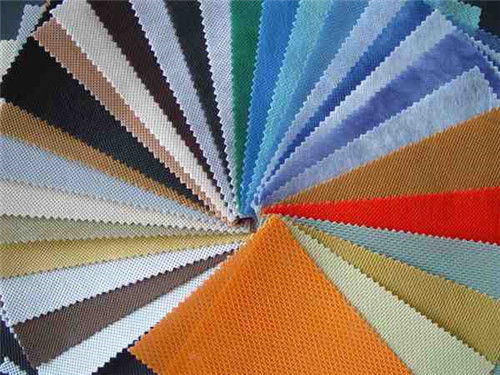
Automotive Industry
Nonwoven polyester in car interiors
Nonwoven polyester is widely used in the automotive industry for the production of car interiors. It is utilized in the manufacturing of seat covers, door panels, and headliners. The use of nonwoven polyester in car interiors offers several advantages such as:
• Durability: Nonwoven polyester is known for its strength and durability, making it ideal for withstanding the wear and tear associated with car interiors.
• Resistance to moisture and chemicals: The fabric's resistance to moisture and chemicals ensures that it remains unaffected by spills or exposure to various cleaning agents.
• Easy to clean: Nonwoven polyester can be easily cleaned due to its smooth surface, making it convenient for maintaining the cleanliness of car interiors.
Nonwoven polyester in vehicle filtration
Nonwoven polyester is also widely used in the automotive industry for vehicle filtration systems. It is commonly used as a filter medium in air filters, water filters, and industrial filtration systems. The use of nonwoven polyester in vehicle filtration offers several benefits, including:
• High filtration efficiency: Nonwoven polyester has excellent filtration properties, effectively trapping particles and contaminants, ensuring clean air and water inside the vehicle.
• Low pressure drop: The fabric's low pressure drop ensures efficient air and water flow through the filtration system, reducing energy consumption and improving overall performance.
• Resistance to chemicals: Nonwoven polyester is resistant to a wide range of chemicals, ensuring the filtration system's longevity and efficiency even in harsh automotive environments.
In summary, nonwoven polyester finds extensive use in the automotive industry, particularly in car interiors and vehicle filtration systems. Its durability, resistance to moisture and chemicals, ease of cleaning, high filtration efficiency, low pressure drop, and resistance to chemicals make it an ideal choice for various automotive applications.
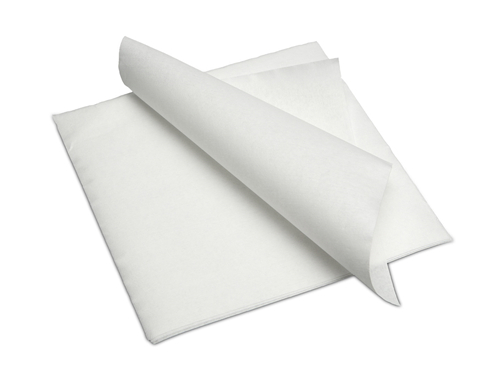
Construction Industry
Nonwoven polyester in geotextiles
Nonwoven polyester is also widely used in the construction industry for the production of geotextiles. Geotextiles are permeable fabrics that are used to improve soil stability, provide erosion control, and aid in drainage systems. Nonwoven polyester offers several advantages in geotextile applications, including:
• Strength and durability: Nonwoven polyester is known for its high tensile strength, making it suitable for withstanding the stresses associated with geotextile applications.
• Permeability: The fabric allows water and gases to flow through, preventing buildup and promoting drainage efficiency.
• Resistance to UV radiation: Nonwoven polyester is resistant to UV radiation, ensuring its longevity and performance even when exposed to sunlight.
Nonwoven polyester in roofing and insulation
Nonwoven polyester is also used in the construction industry for roofing and insulation applications. It is commonly used as a protective layer in roofing membranes and as a thermal insulation material. The use of nonwoven polyester in roofing and insulation offers several benefits:
• Water resistance: Nonwoven polyester is inherently water-resistant, providing an additional layer of protection against leaks and water damage.
• Thermal insulation: The fabric helps to improve the energy efficiency of buildings by providing thermal insulation, reducing heating and cooling costs.
• Flexibility: Nonwoven polyester is flexible and conforms well to different shapes and surfaces, making it suitable for various roofing and insulation applications.
In summary, nonwoven polyester is widely used in the construction industry for geotextile, roofing, and insulation applications. Its strength and durability, permeability, resistance to UV radiation, water resistance, thermal insulation properties, and flexibility make it an excellent choice for various construction projects.
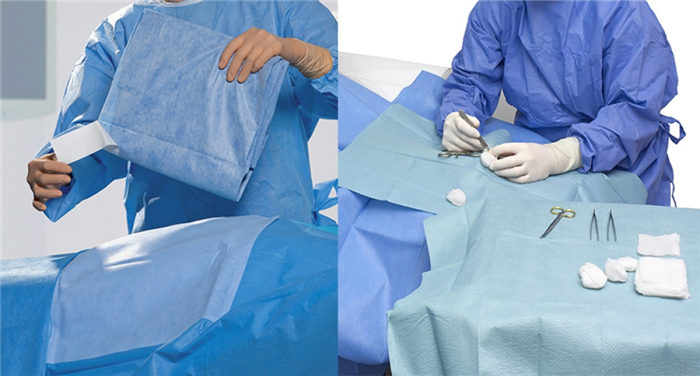
Medical Industry
Nonwoven polyester in surgical gowns and drapes
Nonwoven polyester is also utilized in the medical industry for the production of surgical gowns and drapes. The use of nonwoven polyester in these medical textiles offers several advantages:
• Barrier properties: Nonwoven polyester acts as a barrier against microorganisms and fluids, helping to reduce the risk of contamination during surgical procedures.
• Biocompatibility: The fabric is biocompatible, meaning it is non-toxic and unlikely to cause an allergic reaction in patients.
• Softness and comfort: Nonwoven polyester provides a soft and comfortable feel, enhancing the patient's experience during surgical procedures.
Nonwoven polyester in wound care products
Nonwoven polyester is also employed in the manufacturing of wound care products, such as dressings and bandages. The use of nonwoven polyester in wound care offers several benefits:
• Absorbency: Nonwoven polyester has excellent absorbent properties, helping to manage wound exudate and maintain a clean wound environment.
• Breathability: The fabric allows for moisture vapor transmission, promoting wound healing by creating an optimal healing environment.
• Strength and flexibility: Nonwoven polyester offers both strength and flexibility, allowing for easy application and conforming to different wound shapes and contours.
In conclusion, nonwoven polyester holds significant importance in the medical industry for surgical gowns and drapes, as well as wound care products. Its barrier properties, biocompatibility, softness, absorbency, breathability, strength, and flexibility make it a valuable material in various medical applications.
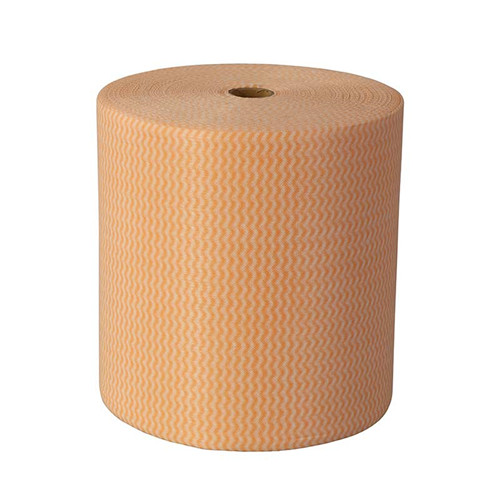
Agriculture Industry
Nonwoven polyester in crop protection
Nonwoven polyester is extensively used in the agriculture industry for crop protection. It is commonly employed in the production of crop covers and mulch films. Nonwoven polyester offers several advantages in crop protection applications, including:
• Protection against pests and insects: The fabric acts as a physical barrier, preventing pests and insects from damaging crops.
• Temperature regulation: Nonwoven polyester helps regulate the temperature around the plants, protecting them from extreme heat or cold.
• Weed suppression: The fabric inhibits the growth of weeds, reducing competition for nutrients and water.
• Moisture retention: Nonwoven polyester helps retain moisture in the soil, ensuring adequate hydration for the plants.
Nonwoven polyester in plant nurseries
Nonwoven polyester is also used in plant nurseries for various applications. It is commonly used in the production of plant pots and seedling trays. The use of nonwoven polyester in plant nurseries provides several benefits, including:
• Enhanced root development: The fabric promotes the development of healthy and well-structured root systems.
• Moisture management: Nonwoven polyester helps regulate moisture levels in the growing medium, preventing over or under-watering.
• Improved air circulation: The fabric allows for increased air circulation around the plants, reducing the risk of fungal diseases.
• Durability: Nonwoven polyester is highly durable and can withstand the demands of a nursery environment.
In summary, nonwoven polyester plays a crucial role in the agriculture industry for crop protection and plant nursery applications. Its properties such as pest protection, temperature regulation, weed suppression, moisture retention, enhanced root development, moisture management, improved air circulation, and durability make it an excellent choice for various agricultural needs.
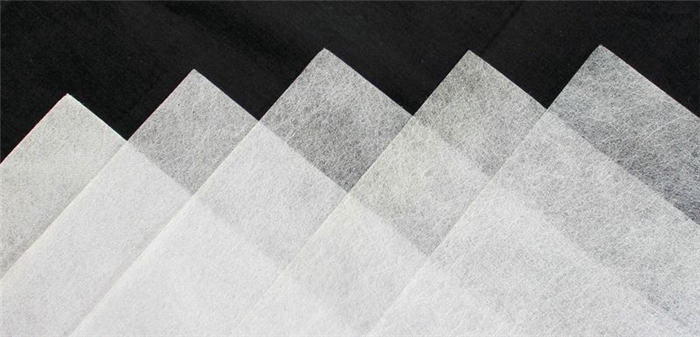
Filtration Industry
Nonwoven polyester in air and water filtration
Nonwoven polyester is widely used in the filtration industry for air and water filtration applications. Its unique properties make it an ideal choice for filtering out impurities and ensuring clean and safe air and water. The use of nonwoven polyester in air and water filtration offers several advantages, including:
• Efficient particle retention: Nonwoven polyester has a high surface area which enables it to capture and retain a wide range of particles, including dust, pollen, bacteria, and other contaminants.
• Chemical resistance: Polyester is resistant to many chemicals, making it suitable for applications where exposure to chemicals is expected, such as water treatment.
• Durability: Nonwoven polyester is highly durable and can withstand the rigors of filtration processes without losing its effectiveness.
• Good airflow: The structure of nonwoven polyester allows for good airflow, ensuring proper ventilation during air filtration.
• Low pressure drop: Nonwoven polyester filters have minimal resistance to airflow, resulting in lower energy consumption and cost savings.
Nonwoven polyester in industrial filtration
Nonwoven polyester is also commonly used in industrial filtration processes. Its versatility and efficiency make it a preferred choice for a wide range of industrial applications, including:
• Dust collection: Nonwoven polyester filters are effective in capturing and removing dust particles generated during various industrial processes, helping to improve air quality and maintain a clean working environment.
• Oil and grease filtration: Polyester filters can effectively remove oil and grease from industrial wastewater, ensuring compliance with environmental regulations.
• Chemical filtration: Nonwoven polyester filters can be used to remove contaminants from chemicals used in industrial processes, ensuring product quality and preventing equipment damage.
• High-temperature resistance: Polyester filters can withstand high temperatures, making them suitable for applications where filtration of hot gases or liquids is required.
In conclusion, nonwoven polyester plays a crucial role in the filtration industry, providing efficient particle retention, chemical resistance, durability, good airflow, low pressure drop, and high-temperature resistance. Its use in air and water filtration as well as industrial filtration ensures clean and safe environments in various applications.
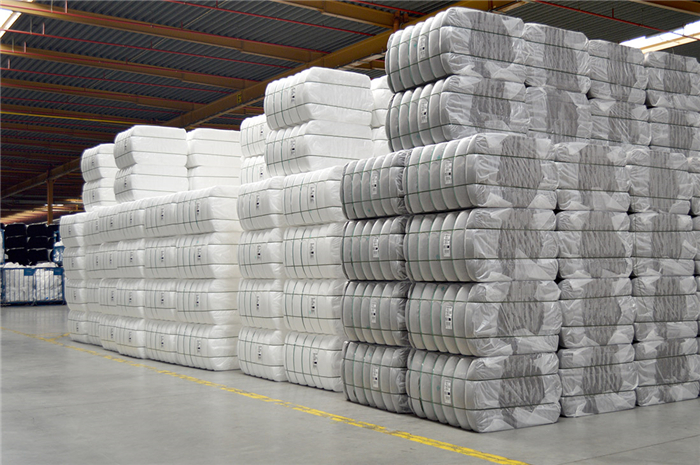
Packaging Industry
Nonwoven polyester in food packaging
Nonwoven polyester is a versatile material that finds application in the food packaging industry. Its unique properties make it an excellent choice for ensuring food safety and preserving the quality of packaged products. The use of nonwoven polyester in food packaging offers several advantages, including:
• Barrier properties: Nonwoven polyester acts as a barrier against moisture, gases, and UV light, protecting food products from external factors that can compromise their freshness and quality.
• Strength and durability: Nonwoven polyester is known for its strength and durability, making it suitable for packaging applications that require protection against punctures or tears.
• Flexibility: Nonwoven polyester can be easily shaped and molded to accommodate various food products, providing a versatile packaging solution.
• Temperature resistance: Polyester packaging can withstand both high and low temperatures, ensuring the integrity of packaged food products throughout the distribution and storage processes.
• Chemical resistance: Nonwoven polyester is resistant to many chemicals, including oils and greases, providing an added layer of protection for food products with high oil content.
Nonwoven polyester in consumer goods packaging
Nonwoven polyester is also commonly used in the packaging of consumer goods. Its versatility and aesthetic appeal make it an ideal choice for a wide range of products, including electronics, clothing, and personal care items. The use of nonwoven polyester in consumer goods packaging offers several benefits, including:
• Product visibility: Nonwoven polyester allows for the visibility of packaged products, enhancing their presentation and creating an attractive display for customers.
• Customization: Polyester packaging can be easily printed on or embellished, allowing brands to create unique and eye-catching packaging designs that reinforce their brand identity.
• Eco-friendly options: Nonwoven polyester can be made from recycled materials, offering a sustainable packaging solution for environmentally conscious brands.
• Lightweight: Polyester packaging is lightweight, reducing transportation costs and carbon emissions associated with shipping.
• Protective properties: Nonwoven polyester provides a protective layer for consumer goods, safeguarding them from moisture, dust, and other external factors that can damage the products.
In conclusion, nonwoven polyester is widely used in the packaging industry, offering advantages such as barrier properties, strength and durability, temperature and chemical resistance. Its applications in food packaging and consumer goods packaging ensure the safety, preservation, and presentation of various products.
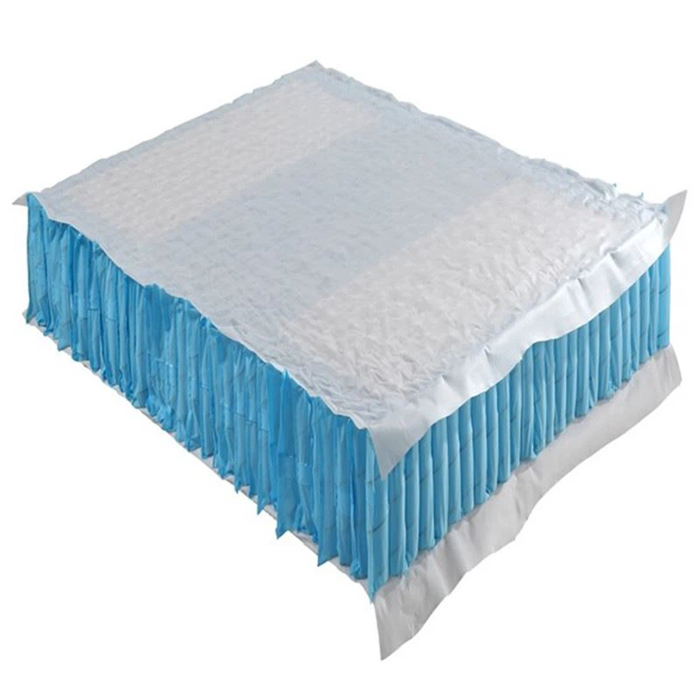
Home Furnishings Industry
Nonwoven polyester in upholstery and bedding
Nonwoven polyester is a versatile material that is widely used in the home furnishings industry, particularly in upholstery and bedding. It offers several advantages, making it a popular choice for these applications:
• Durability: Nonwoven polyester is known for its strength and durability, making it a suitable choice for upholstery and bedding that need to withstand everyday wear and tear.
• Comfort: Polyester fibers in nonwoven form can be engineered to provide cushioning and support, enhancing the comfort of upholstered furniture and bedding items.
• Easy maintenance: Nonwoven polyester is resistant to stains, making it easy to clean and maintain upholstery and bedding. It can also resist mold and mildew, ensuring a longer lifespan for these • products.
• Hypoallergenic: Nonwoven polyester can be manufactured to be hypoallergenic, making it an ideal choice for people with allergies or sensitivities.
• Cost-effective: Compared to natural materials like cotton or silk, nonwoven polyester is often more affordable, making it a cost-effective option for upholstery and bedding.
Nonwoven polyester in curtains and blinds
Nonwoven polyester is also commonly used in the production of curtains and blinds. It offers several benefits for these applications:
• Lightweight: Nonwoven polyester curtains and blinds are lightweight, making them easy to handle and install.
• Versatility: Polyester can be easily dyed and printed on, allowing for a wide range of colors and patterns in curtains and blinds.
• Durability: Nonwoven polyester curtains and blinds are resistant to fading and have good tear strength, ensuring a long-lasting and durable product.
• Easy maintenance: Polyester is wrinkle-resistant and can be easily cleaned, making it a low-maintenance option for curtains and blinds.
• Light control: Nonwoven polyester curtains and blinds can effectively block out light or allow light to filter through, giving homeowners control over light levels in their spaces.
In conclusion, nonwoven polyester is a popular choice in the home furnishings industry due to its durability, comfort, easy maintenance, and affordability. Whether it is used in upholstery and bedding or curtains and blinds, nonwoven polyester offers a range of benefits and enhances the functionality and aesthetics of home furnishing products. Whether you are looking for comfortable bedding or stylish curtains, nonwoven polyester is worth considering for your home.
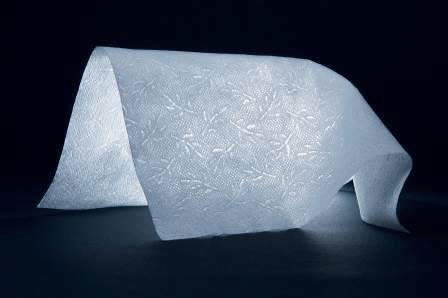
Conclusion
Benefits and future prospects of nonwoven polyester
Nonwoven polyester is highly valued in the home furnishings industry, particularly in upholstery, bedding, curtains, and blinds. Its versatility, durability, comfort, easy maintenance, hypoallergenic properties, and cost-effectiveness make it a popular choice for these applications. Additionally, its lightweight nature, versatility in color and pattern options, resistance to fading and tears, easy cleaning, and light control capabilities make it suitable for curtains and blinds as well. Nonwoven polyester offers a range of benefits that enhance the functionality and aesthetics of home furnishing products.
The future prospects of nonwoven polyester in the home furnishings industry are promising. Continuous advancements in technology and manufacturing processes allow for further improvements in the quality and performance of this material. Innovations such as enhanced breathability, moisture-wicking properties, and increased environmental sustainability are being explored to meet the evolving needs and preferences of consumers. These developments will further solidify nonwoven polyester's position as a go-to material in the industry.
Summary of innovative uses in various industries
Nonwoven polyester has extended its applications beyond the home furnishings industry. It is widely used in industries such as automotive, healthcare, construction, filtration, and packaging. In automotive applications, nonwoven polyester is used for insulation, soundproofing, and upholstery. In healthcare, it finds use in medical gowns, face masks, and wound dressings. The construction industry utilizes nonwoven polyester for geotextiles and roofing materials. Filtration applications include filters for air, water, and oil. In packaging, nonwoven polyester is used as protective wrapping and padding material.
The versatility, strength, durability, and cost-effectiveness of nonwoven polyester make it a preferred choice across these industries. As technology and research continue to advance, there is potential for further innovative uses in various sectors. Nonwoven polyester is poised to play a significant role in meeting the evolving needs and demands of these industries.
Overall, nonwoven polyester's benefits and potential applications make it a valuable material in the home furnishings industry and beyond. Its diverse range of advantages, along with its continued improvement and innovation, ensure its significance in various sectors for years to come.




